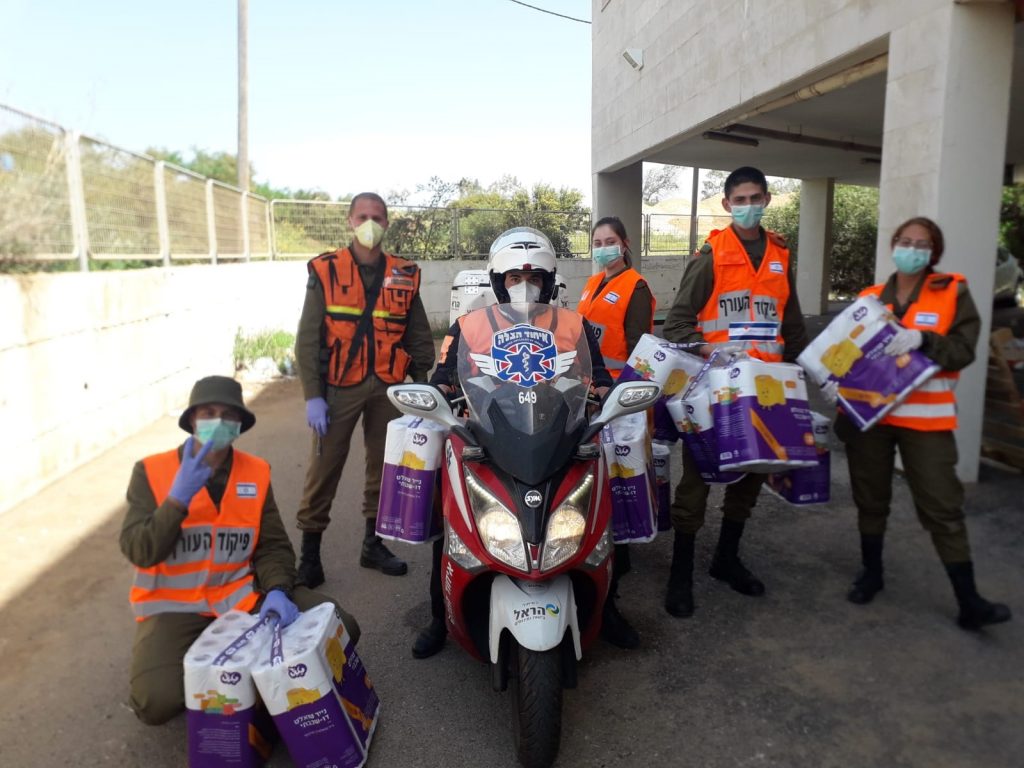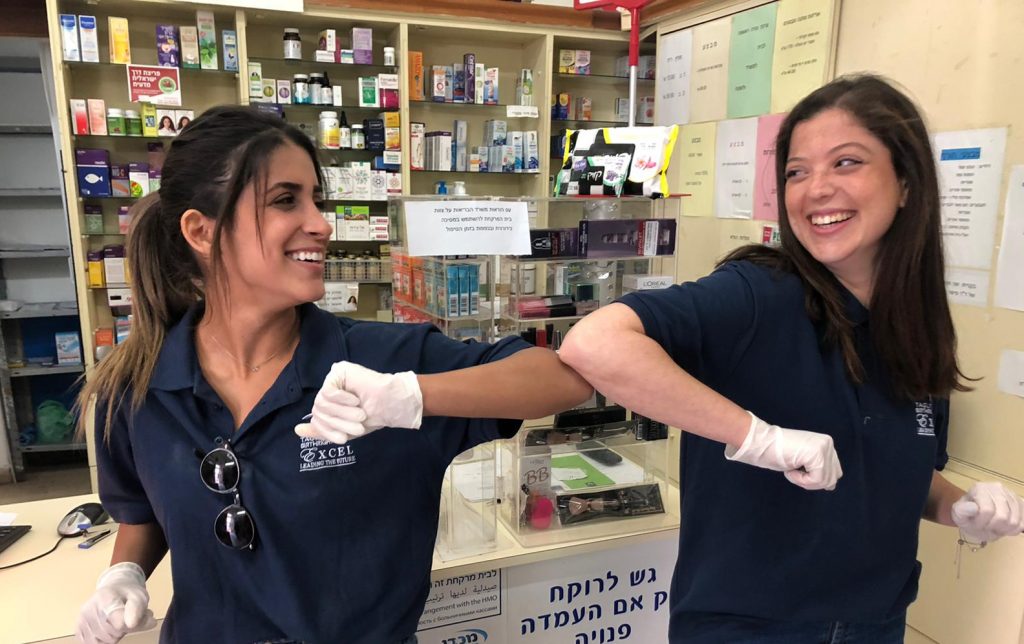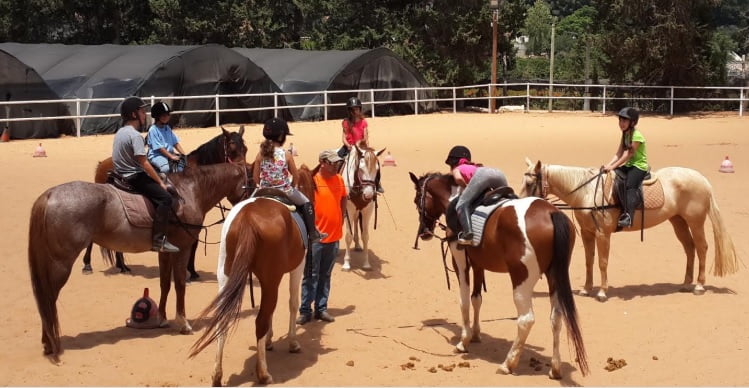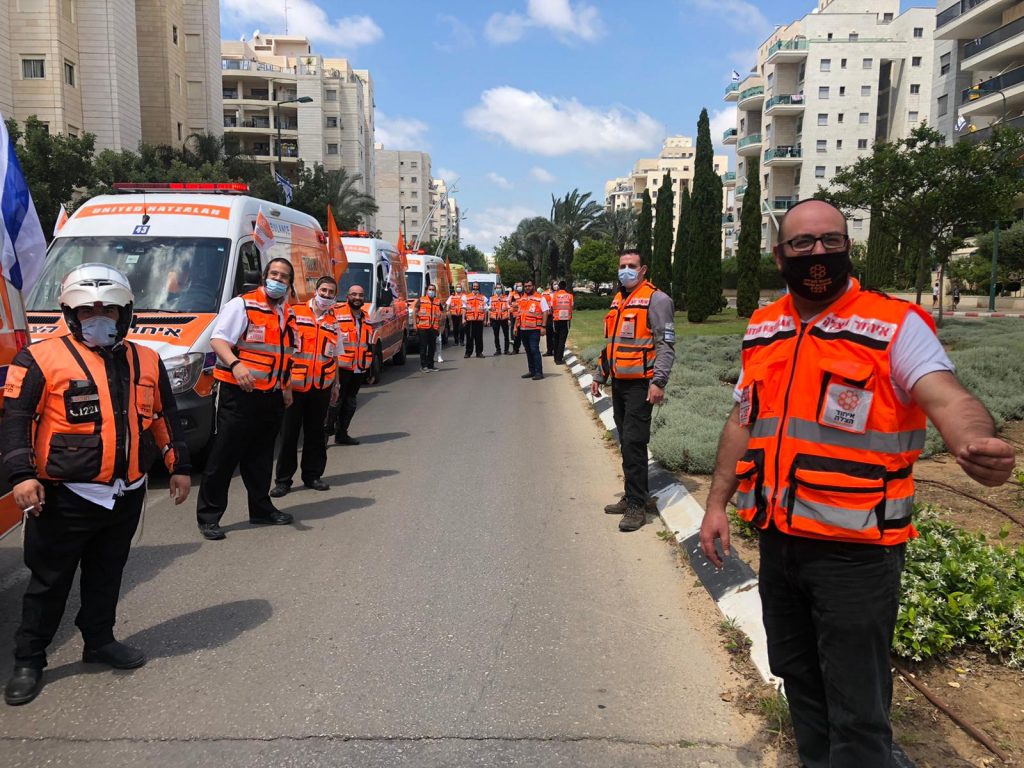With Israel slowly easing out of the pandemic lockdown, the country’s inhabitants are breathing a collective – if cautious – sigh of relief. But the renewed optimism is also mixed with sadness: for the havoc the COVID-19 crisis has wreaked, leaving the world economy in tatters and affecting the health, livelihood, and wellbeing of billions of people.
Many of us who see the devastation are now realizing how lucky we are and feeling that we should somehow help, beyond just keeping our distance from others and wearing face masks to prevent a second wave of the outbreak. Some look to contribute financially, be it $5 or $200, and others feel called to help with action.
The problem with wanting to help in times of crisis is often not knowing where to start. Should you donate to that cause at the supermarket check-out, or the crowdfunding campaign that popped up on your social media feed, and will your $5 dollars make a difference?
To help, we’ve assembled a list of causes, charities and organizations in Israel that are out there buying food and diapers for families in need; helping elderly holocaust survivors, and supporting at-risk youth financially.
With some 10,000 active non-profits in Israel, this list is far from exhaustive. But we hope you’ll find this is a good starting point. As Winston Churchill said: “We make a living by what we get. We make a life by what we give.”
Leket Israel
Leket Israel is the leading food rescue organization in Israel, whose sole focus is rescuing surplus food items and delivering them to those in need through partner nonprofit organizations. Under normal circumstances, Leket Israel rescues cooked food from hotels, corporate cafeterias, IDF army bases and so on.
But with hotels and function halls shuttered during the height of the crisis, Leket was locked out of its major supply source of its meal rescue program feeding 9,000 people a day. Within a week, Leket Israel moved from meal rescue to purchase, coordinating with four catering companies and nonprofit recipients in 27 cities. Collection and delivery routes were restructured including a meals-on-wheels service to peoples’ homes. Over 11,000 people are now receiving a daily hot meal and Leket says sufficient funds have been raised to keep the initiative running for another 6-7 weeks.
ככה זה עובד- העובדים המסורים שלנו בתהליך אריזת ארגזי ירקות ופירות במרלו"ג ברעננה שנשלחים למשפחות נזקקות בכל הארץ.מה…
פורסם על ידי לקט ישראל Leket Israel ב- יום שני, 4 במאי 2020
“The economic downturn has put the produce market in a tailspin. With orders from hotels and caterers at a complete standstill, farmers are inviting us into their fields daily to harvest tons of crops they will otherwise need to destroy,” Leket founder Joseph Gitler tells NoCamels.
“At the same time, 24 municipal welfare departments, have turned to Leket to help feed their housebound and lonely. We anticipate distributing 4.5-5 million pounds (2.04-2.2 million kg) of produce in the coming month to municipalities and to our 175 nonprofit partners,” he says.
In 2019, Leket rescued 2.2 million hot meals and 15,700 tons of fresh produce and had 37,000 volunteers.
Here’s a short video of some of the work they’ve been doing these past few weeks:
Mothers Make a Difference
Not all worthy causes are registered non-profits and some work better as smaller, grass-roots movements. Founded in early 2014, Mothers Make A Difference was created by a group of around 20 volunteer moms, scattered across Israel, who wanted to find a way to get much-needed baby items like diapers and non-perishable foods to families in need.
Through one medium only, Facebook, the group puts out regular calls for help, listing items in need and their community can bring any items they can spare or buy to drop off points (usually the moms’ homes). The group then delivers the items to partner charities, including Mesila, UNITAF, Elifelet in South Tel Aviv, The Blind Center in the center of Tel Aviv, The Forgotten People Fund in Netanya and The Jaffa Institute and Bat Melech women’s shelter in Jerusalem.
“It’s truly amazing how together, thanks to our donors, we all make this happen,” says Tel Aviv-based mom-of-three Chloe Backner, one of the founders of the Facebook project.
She tells NoCamels: “Not only do people deliver donations, but many organize online grocery orders, donate work food vouchers (through programs like 10bis or Cibus) and organize personal paybox and celebratory collections to buy things like diapers, formula and non-perishable food.”
United Hatzalah
Founded in 2006 just after the end of the Second Lebanon War, United Hatzalah is the largest independent, non-profit, fully volunteer emergency medical service organization that provides fast and free emergency medical first response throughout Israel.
Known for its ambucycles (scooters that double as ambulances) United Hatzalah has a network of more than 6,000 volunteers around the country who work 24 hours a day. With the help of their unique GPS technology, United Hatzalah says its average response time is less than three minutes across the country and 90 seconds in metropolitan areas.
Just a few weeks ago, the organization’s founder Eli Beer was put in a medically induced coma and connected to a ventilator after contracting COVID-19.

Having made it through, Beer is undeterred. “Our mission is to arrive at the scene of medical emergencies within 90 seconds and provide the patient with professional and appropriate medical aid until an ambulance arrives, resulting in many more lives saved,” he tells NoCamels.
In 2018, the annual budget of the organization was $20,000,000 and it currently responds to approximately 1,800 medical emergencies every day.
Since the start of the pandemic, United Hatzalah has responded to approximately 30,000 humanitarian calls for assistance. “Israel’s Ministry of Health has been taking an aggressive approach in attempting to prevent the virus’ spread in the country and United Hatzalah is doing everything it can to assist in this mission, all the while maintaining our regular emergency medical service activities,” says Beer.
“Israel’s ambulance services are overtaxed and spread extremely thin – too thin to provide a fast and adequate response to the thousands of general medical emergencies that occur on a daily basis. United Hatzalah has stepped in to fill that gap, responding to a growing number of medical emergencies across the country,” he adds.
This includes United Hatzalah ambulance crews working with the IDF’s Homefront Command and the Ministry of Health in transporting COVID-19 positive patients from overcrowded hospitals to specially designated “Corona Hotel” recovery centers.
Additionally, United Hatzalah has established a second dispatch center in Tel Aviv to increase its capacity and ensure operational continuity.
Door to Dor
Another grass-roots project, Door to Dor was a group of young Birthright Excel alumni eager to support the elderly community during the Coronavirus crisis.
Birthright Excel is the entrepreneurship, leadership and business program of Birthright, the NGO that sponsors free trips to Israel for Jewish young adults. Birthright Excel put out a call for action for its alumni across North America and Israel to develop initiatives that meet the new challenges faced by the spread of coronavirus.

Door to Dor (Dor in Hebrew means generation) is a service for the elderly who are unable to leave their homes due to the pandemic. Volunteers pick up prescription medicine, groceries, and other products and leave them at the person’s front door so there is no physical contact or risk. The volunteer then leaves the building and calls the person to confirm the delivery was made.
“The main mission of Door2Dor is to enable a normal routine for populations that might be at higher risk for severe illness form COVID-19 and are still scared to go out. By using our self-developed geographical-based app, we are also able to bring the volunteers closer to the community, make intergenerational connections, and relieve the loneliness of aid seekers in many cases,” Daniel Trau, one of the founders of Door2Dor, tells NoCamels.
So far, the movement has helped over 10,000 people, with more than 10,000 registered volunteers.
TenGav
TenGav is an internet crowdfunding platform that matches donors to individuals and families with modest needs that have been submitted for backing by social services professionals.
Sign up for our free weekly newsletter
Subscribe“We receive requests for basic needs such as beds, fridges, ovens and washing machines, and for vocational or academic programs, psychological evaluations and therapies, medical accessories, computers and more,” Vivi Mann, one of the founders of TenGav, tells NoCamels.
So the organization designed a crowd-funding website to bring direct access to requests for help and the stories of the families behind them to the broader giving public. “This allows donors to have a personal, meaningful and verified giving experience,” says Mann. The costs of the requests do not exceed $1,500 (NIS 5,500) and 100 percent of the donations made on the Ten Gav website go to fund the request.
TenGav has also established a Corona Relief Fund to deal with the heavy financial toll of the COVID-19 crisis. “The Corona Relief Fund provides assistance to clients of our social services partners who have lost their jobs as a result of the Covid-19 crisis.” The Corona Relief fund is expected to function as a temporary fund until the end of December 2020.
TenGav is currently operated by seven volunteers and two part-time employees. Mann and Naomi Brounstein, both co-founders, volunteer full-time with Ten Gav.
Adopt-A-Safta
Adopt-A-Safta, founded in 2012, is a national community of “grandchildren” adopting lonely grandparents in need, with a special focus on Holocaust survivors. “Every society should be judged on how well they care for their vulnerable seniors. Working off the Big Brother/Big Sister model, our young volunteers ‘adopt’ a grandmother or grandfather that needs love and attention for weekly visitations,” says Jay Shultz, founder of Adopt-A-Safta.
Of the approximately 150,000 survivors in Israel today, of which 40 pass away every day on average, their consistent number one complaint is simple loneliness, when polled by NGOs.
Hey Adopt-A-Safta community, know an senior in need? Please let us know. We have volunteers to make calls, run to shops, tell a joke, give a virtual smile etc… Email us: info@AdoptASafta.com
פורסם על ידי Adopt A Safta ב- יום חמישי, 19 במרץ 2020
“Our goal is to train as many volunteers as possible and to connect these two communities; young adults seeking to make meaningful contributions with intergenerational contact, and the lonely elderly in need of warmth and connection while we still are blessed with the presence of this holy generation,” Shultz tells NoCamels.
Because of the coronavirus, the organization has halted all home visitations, but ramped up phone calls and checking in on the physical needs of the elderly. They partnered to create a nationwide phone call system with Hebrew-speaking volunteers from around the globe.
MyIsrael
Founded in 2008 in the UK, MyIsrael is kind of like fund of funds, created to raise funds and awareness for under-the-radar causes in Israel. It chooses 18 causes every year and helps non-profits run their organizations more efficiently. MyIsrael does this by advising them on crucial matters of budgeting, marketing, donor communications, database management, and of course, fund allocation.
Since its launch, the organization has supported over 60 causes across the country and has raised a total of $7.5 million from more than 4,000 donors in the UK and in Israel.
At the start of the COVID-19 crisis, MyIsrael launched an emergency appeal initially raising £50,000 for food vouchers, taxi rides for cancer patients to go hospital for treatment, activity kits for elderly people, laptops for Ethiopian-Israeli students, and urgent house repairs for families in need.
The organization promises that 100 percent of all donations go directly to the causes themselves, with no overhead costs going to MyIsrael.
Family Nest
The Ashkelon Family Nest, one of the charities supported by MyIsrael, was founded in 1989 to assist mothers living in disadvantaged areas of Southern Ashkelon. The organization helps them exit the desperate cycle of poverty, abuse, and addiction, isolation, “transforming the mothers from supported to supporters themselves to other mothers in distress,” says Seth Davis, who runs the fundraising for Nest.
For a young mother caught in this cycle, “it can feel like there is no one to turn to… and no one who could possibly understand what they are going through,” says Davis.
But at Family Nest, these vulnerable women meet others who have been through similar experiences and have come out on the other side. It can often be the driving force to transforming their life,” he tells NoCamels.
Family Nest runs programs for mothers designed to build their skillset and give them the tools to cope with daily challenges. These include self-esteem and self-confidence workshops, financial coaching, and fitness and skills classes. The mothers develop new social circles and learn to share their experiences with others. And their children are cared for with an array of activities and summer camps.
Each mother is assigned a companion, a trained volunteer, who has either “graduated” from the Nest herself or who can relate to their issues. The companion develops a strong relationship with the mother, offering guidance, friendship, and companionship, often the first real connection they may have experienced in a long time.
Davis tells NoCamels that “COVID-19 has had a massive toll on our families. Many of the mothers have now lost all sources of income beyond a government stipend that is not sufficient for a household.”
To offset this situation, Nest formed an emergency appeal and raised funds to support the families throughout this whole period. The emergency support includes weekly food packages, games, and toys for the children, cleaning supplies, and other emergency relief items.
Crossroads
According to the organization Crossroads, there are hundreds of English-speaking teens living on the streets of Jerusalem. In 2001, Crossroads was created specifically to help these young people.
Robbie Sassoon, executive director of Crossroads, explains: “At night, Crossroads’ team of social workers and volunteers approach youth on the streets. For the first time, these teens discover there are people wanting to help them, and they are offered both immediate assistance and long-term services.”
At the Crossroads Center, the youth have access to safe shelter, counseling, and a host of recreational activities. They can take part in study and employment opportunities tailored to support their individual needs.
With the outbreak of the public health crisis in Israel, Sassoon tells NoCamels that their social workers have observed first-hand the devastating effect that this has had on the mental health of their vulnerable population.
“The new normal of social distancing, imposed isolation and loss of a sense of control has exacerbated feelings of loneliness, intensified intrusive thoughts, heightened anxiousness, sparked a palpable sense of fear brought on by an uncertain future, and prompted an increase in anxiety, depression and suicidal ideation. These mental health triggers brought on by the “new normal” necessitate that our social workers be available to our vulnerable population now more than ever. We are their safety net,” he says.
INTRA – Israel National Therapeutic Riding Association
INTRA, located in the idyllic setting on Moshav Bnei Zion, is Israel’s leading center for horse therapy supporting children and adults with various disabilities. The benefits of equine therapy are numerous, from increased strength and flexibility, improved motor skills, promotion of speech and cognitive reasoning, and building relationships and social skills.
“Horses have a remarkable effect on children and adults with physical, mental and emotional conditions,” according to Dr. Anita Shkedi, who founded the organization with her husband. “Within weeks of starting INTRA’s sessions, most riders show dramatic improvement in their ability to face the challenges of their disability.”

“From a paralyzed soldier regaining the ability to walk, to a child with autism learning to speak, the healing power of horses are irrefutable,” she says. “Highly skilled therapists and horses at INTRA work with children and adults with a wide range of special needs and achieve success where other therapies have failed, helping them to walk, talk, connect and learn.”
INTRA is supported by donations and takes in young adults from Sherut Leumi, an alternative voluntary national service in Israel for those that cannot or do not wish to serve in the Israel Defense Forces, as volunteers. These young people do their National Service through the organization.
NoCamels co-founder Anouk Lorie is also behind the popular podcast Founder Stories.
Related posts

Rehabilitation Nation: Israeli Innovation On Road To Healing

Israeli High-Tech Sector 'Still Good' Despite Year Of War





Facebook comments